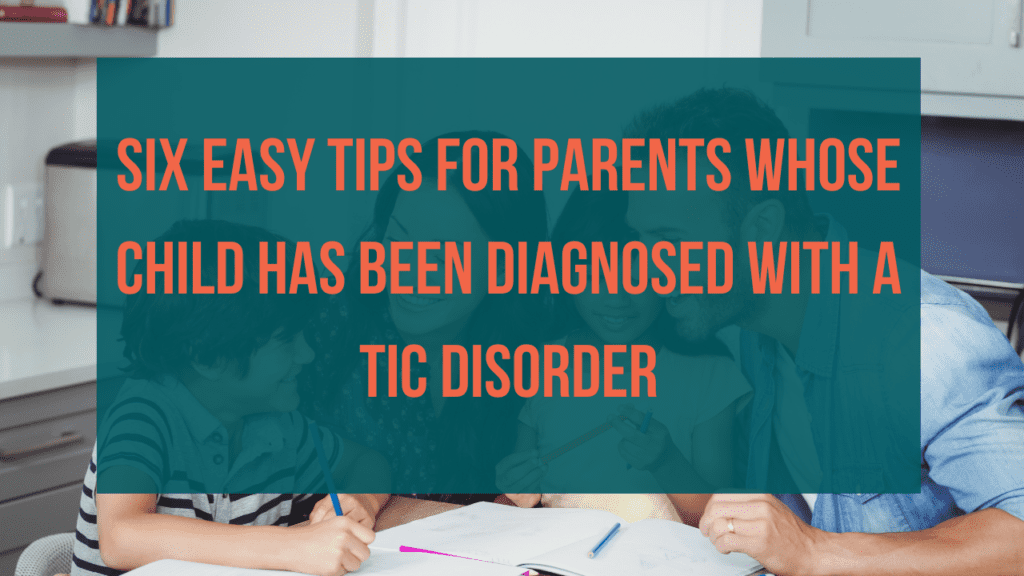Parents of kids diagnosed with tic disorders (tics) often wonder what they can do to help their children. You feel like you have tried every treatment and remedy on the internet but nothing seems to be working. You’ve spent hours searching Dr. Google for: natural treatment for tics, natural supplements for tics, natural remedies for tics, how to stop tics naturally, facial tics, twitches, eye blinking…the list goes on, I get it. I have been there! You are not alone in your struggle to find effective treatment options for your child’s tic disorder. It can be frustrating and overwhelming, but it’s important to keep researching and seeking out expert guidance. There are various tic disorder treatment options available, including behavioral therapy, medication, and alternative therapies. It’s worth consulting with a qualified healthcare professional to discuss which options may be most suitable for your child’s specific needs.
We’ve got six easy tips for you!
1. Be patient and kind- Tics are involuntary movements that come on suddenly, so it’s important not to get frustrated if your child has a sudden outburst or gets nervous when they feel like one is coming on. By being patient and understanding, we show our children that there is no shame in having a tic disorder and that we love them unconditionally.
2. Monitor your surroundings- When entering new environments, note the people around you and any potential triggers for tics, such as bright lights or loud noises, before allowing your child to explore freely.
3. Tics are involuntary and can signify something going on more profound in the body. That can include infections, blood sugar imbalances, stress, poor gut health, nutritional deficiencies, and toxic overload.
4. Find out what triggers the tic and remove that trigger from their environment. Triggers are everywhere and can involve foods, harsh smells, stress, environmental allergens, chemicals, and more.
5. Keep track of your child’s tics; you can grab a copy of the Tic Trigger Tracker HERE
6. Provide them with a safe space where they can let out any frustration or anxiety without hurting themselves or anyone else
Do you know what your child’s tics mean? Tics are involuntary and can be a sign of something else going on more profound in the body. That can include infections, blood sugar imbalances, stress, poor gut health, nutritional deficiencies, and toxic overload. If your child exhibits any repetitive movement or sounds that they cannot control- like facial tics or throat clearing- it is time to take notice! Observe their tics closely to see if they seem related to stress (which may indicate an underlying issue) or not. Check with them to find out what triggers those tics so you can remove that trigger from their environment as soon as possible. Keep track of how often these happen, too; this will help identify

